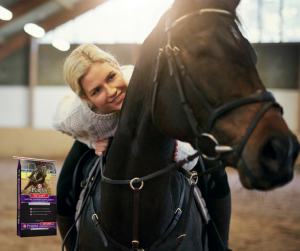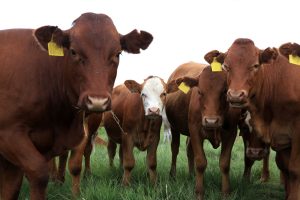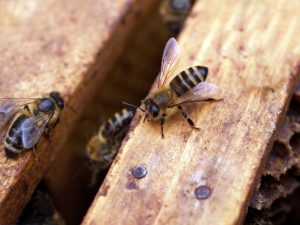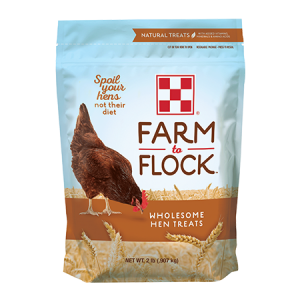 Gastric discomfort may negatively affect a horse’s health, attitude, and performance. Fortunately, recognizing signs of discomfort and providing proper management can help support your horse’s gastric health.
Gastric discomfort may negatively affect a horse’s health, attitude, and performance. Fortunately, recognizing signs of discomfort and providing proper management can help support your horse’s gastric health.
Did you know that the prevalence of gastric discomfort in active horses is high? Studies indicate that the prevalence of gastric ulcers in performance horses is 90% or more1.
What causes gastric discomfort in horses?
As grazing animals, horses are made to steadily eat a forage-based diet throughout the course of an entire day. This constant slow-feed intake naturally regulates the acidity of the horse’s stomach contents. Additionally, the saliva a horse generates through chewing naturally buffers the acid.
Modern horse-keeping practices often limit feeding to two or three daily meals. Unless a horse is turned out to graze or barn staff frequently refills the hay supply, the horse doesn’t receive more hay until the next feeding.
Even though the horse isn’t eating, his stomach still produces acid. Without chewing, there isn’t a steady source of saliva and natural enzymes to help protect the stomach. An overabundance of acid and a lack of saliva means the stomach’s natural pH level drops too. These factors create the trifecta for gastric discomfort.
Stress can also put horses at a greater risk for gastric discomfort. Rigorous exercise, long-distance travel, a new environment, and confinement can contribute to lower gastric pH levels.
What are the signs of gastric discomfort in horses?
Gastric discomfort can present differently in individual horses. Common signs of equine gastric discomfort include:
- Poor appetite
- Picky eating
- Poor body condition
- Weight loss
- Chronic diarrhea
- Poor coat condition
- Teeth grinding (bruxism)
- Changes in behavior, including aggression, nervous behaviors, side biting and “girthiness”
- Acute or recurring colic
- Poor performance
How to manage a horse with gastric discomfort
Research has shown continuous acid production and low gastric pH can contribute to the development of gastric ulcers and Equine Gastric Ulcer Syndrome (EGUS)1. Fortunately, there are things you can do to minimize your horse’s risk for developing EGUS and manage a horse with gastric discomfort.
1. Recognize factors or events known to cause gastric discomfort in horses.
Some factors include:
- Environment stressors
- Lack of turnout
- Injury
- Fasting
- High starch diets
- Inadequate forage
- Prolonged use of NSAIDs
- Travel
- Elevated exercise, training, showing or racing
2. Recognize the signs of gastric discomfort in horses.
Common signs are listed above, but individual horses present discomfort in different ways. Become familiar with your horse’s normal behavior to help determine if behavior changes are a sign of discomfort.
3. When to seek help from your veterinarian.
Work with your veterinarian for diagnosis and treatment if you recognize risk factors or symptoms. Gastroscopy is the only way to confirm the presence of gastric ulcers, and prescription acid suppression therapy may be required to heal ulcerations. If treatment is necessary, work with your veterinarian to determine the best medication for your horse.
4. Manage gastric discomfort.
Develop a management program to minimize the factors contributing to gastric discomfort. Provide ample turnout and continuous access to fresh water. Anticipate stressful events, such as traveling or showing, and use Purina® Outlast® Gastric Supplement to support and maintain gastric health and proper pH during those times.
5. Horse nutrition.
Choosing the right feed products and implementing good feeding management practices are vital in managing your horse’s gastric health.
- Never allow more than six hours of fasting and provide frequent access to good quality hay and/or pasture.
- Incorporate alfalfa into your horse’s diet.
- Feed higher fat and fiber concentrates and avoids high starch and sugar feeds. The Purina horse feed lineup includes many appropriate options
- Support optimal gastric pH by feeding Purina® Outlast® Gastric Support Supplement along with concentrate meals. In addition, feed Outlast®1 supplement as a snack before you ride, trailer or show to maximize gastric support during these activities.
- For horses needing more calories, Purina® Ultium® Gastric Care and Race Ready® GT horse feeds both contain a full serving of Outlast® supplement and are designed to support gastric health and caloric needs of performance and racehorses. Strategy® GX and Strategy® Healthy Edge® and Impact® Professional Performance horse feeds now also all contain Purina® Outlast® Gastric Support Supplement.
By recognizing the signs associated with gastric discomfort and adjusting management and dietary practices, you can help support your horse’s gastric health. Learn more about Outlast® supplement and your horse’s gastric health at FeedOutlast.com.
Source: Kelly Vineyard, M.S., Ph.D., Senior Nutritionist, Equine Technical Solutions





 Pasture looks excellent right now, so why pay attention to forage for cattle?
Pasture looks excellent right now, so why pay attention to forage for cattle?

